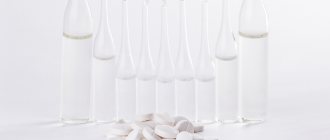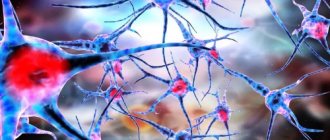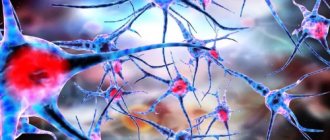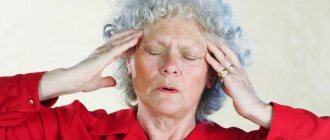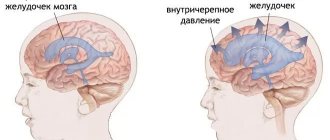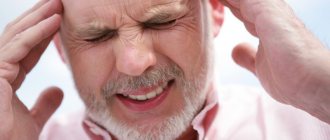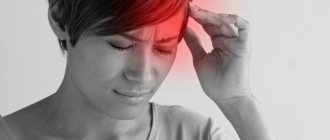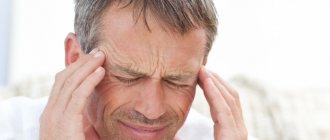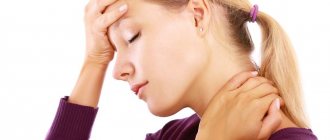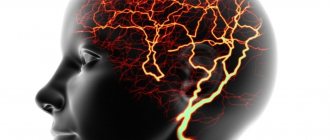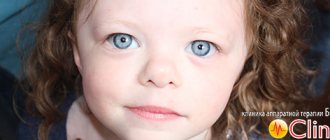Content
- Possible causes of headache (with or without vomiting)
- What should parents pay attention to? Frequent headaches in infants
- For a child 5-7 years old
- For a child 7-10 years old and older
Headache is one of the most common complaints in children of all ages. It is not a disease, but only a symptom. Often headache attacks in children appear in preschool age, around the age of 6 years. They are shorter in duration than in adults. At the same time, children have a complete headache, and at the same time their stomach.
“Give me the diary!”
If the pain does not arise suddenly and is not accompanied by fever and pathological symptoms that the neurologist will check with a hammer, then only the complaints of the small patient or his parents will be sufficient for diagnosis.
True, sometimes doctors refer the child for unnecessary tests: ultrasound of the neck vessels, EEG, x-ray of the cervical spine - but this is absolutely not necessary to diagnose a primary headache.
The only thing that is difficult to do without during diagnosis is a headache diary, where the child or his parents keep notes about attacks and what triggered them. If you keep a diary for at least 3-4 weeks, this will certainly help the doctor make a diagnosis much more accurately.
Unmanageable tasks. How to protect your child from intellectual overload Read more
Possible causes of headache (with or without vomiting)
There are many factors that provoke headaches in children. Ailments may appear after sleep, in the morning or in the afternoon. Often their occurrence is associated with external factors: from weather changes to emotional or physical stress.
The following diseases cause pain in children:
- epilepsy;
- myositis;
- vasculitis (inflammation of the blood vessels of the brain);
- measles;
- migraine;
- vegetative-vascular dystonia;
- otitis;
- malignant or benign neoplasms;
- ARVI;
- sinusitis;
- pulpitis;
- neuroses;
- meningitis;
- periodontitis;
- angina;
- encephalitis;
- neuritis;
- and etc.
In addition, pain may occur in the event of toxic damage, poisoning, decreased or increased intracranial pressure. Another reason is the presence of head injuries. Source: https://www.ncbi.nlm.nih.gov/pmc/articles/PMC4293983/ Choon How How and Wei Shih Derrick Chan Headaches in children Singapore Med J. 2014 Mar; 55(3): 128–131.
What should parents pay attention to?
- At what time of day and when attacks occur.
- What provokes and intensifies painful sensations: body position, physical activity, stressful situations, noise, light, etc.
- Frequency of pain.
- Which helps relieve pain.
- Localization of the pain focus.
- Is the pain accompanied by nausea, fever, vomiting or other symptoms. Source: E.I. Karpovich Headache in children: modern classification, clinical features, treatment issues // Issues of modern pediatrics, 2008.-N 1.-P.111-115
Frequent headaches in infants
Often, headaches occur in newborns when intracranial pressure increases. It may be accompanied by fever, general malaise, digestive disorders or other symptoms. Up to six months, painful sensations are sometimes associated with a reaction to teething.
If the child is at an age when he is not able to complain to you about a headache, you can determine it by the following signs:
- the presence of bright veins on the skull;
- lethargy and constant crying;
- throwing the head back;
- frequent regurgitation;
- excessive irritability;
- shiver.
For a child 5-7 years old
Preschoolers spend a lot of time on electronic devices and watching TV. Excessive strain on the organs of hearing and vision can provoke a migraine or severe headache.
A preschool child is actively interested in games. They are often accompanied by noise and accidental injuries, which can cause headaches of various types.
The stuffy air in the nursery often causes discomfort. In this case, it is enough for parents to ventilate the room. In addition, it is necessary to take care of proper rest, provide the child with healthy nutrition and sleep lasting from one to two hours.
For a child 7-10 years old and older
Schoolchildren and teenagers often experience stress associated with studying and excessive emotionality. When a child is not able to perceive the volume of material that is taught to him in an educational institution, his nervous system is depleted. Against this background, overwork occurs - one of the factors influencing the appearance of headaches.
Girls are more susceptible to nervous exhaustion. In their development, they are ahead of boys, while their emotional background is higher.
By the age of 10-12, school-age children begin to undergo hormonal changes. It can have a negative impact on your mental and emotional state. During this period, migraines or severe headaches may occur. Also, teenagers are significantly susceptible to pressure changes, and food allergies can also occur. A sudden change in weather or the wrong choice of foods can trigger headaches. During this period, parents need to pay special attention to the child’s daily routine. You should monitor whether he spends enough time in the fresh air, how much he sleeps and how often and what he eats.
“You have a pill on you”
For headaches, children are prescribed paracetamol and ibuprofen (calculating the dosage by kilograms of weight). But under no circumstances should you take aspirin – it can cause dangerous side effects in some children.
It is better to take the medicine as soon as possible so that the pain goes away and does not return the next day. Therefore, if a child suffers from migraine, let him take the medicine to school (or the parents will give it to the teacher or nurse). You can stop a migraine attack without pills if you use a special device that stimulates the trigeminal nerve fibers in the forehead. This method has virtually no side effects and is not addictive. But medications cause this: for example, ibuprofen should not be used more than 15 days a month. This can lead to additional headaches – overuse headaches. For combined drugs like citramon and pentalgin, this period is even shorter - 10 days per month. For frequent migraine attacks, your doctor will prescribe special preventive treatment.
Should a child be forced to work in the garden? More details
Treatment of headache and nausea
Only a pediatrician can relieve pain and correctly determine the cause of its occurrence. He will analyze the patient’s condition,, if necessary, conduct a full examination and prescribe effective treatment.
The pain can be caused by brain disease, traumatic brain injury, or infection. Sometimes the cause is a carbohydrate metabolism disorder. As a result, the child experiences weakness and vomiting with pain. In such cases, the patient is prescribed a special diet and medications.
You can get qualified help at a medical clinic, where experienced specialists work. They will provide a full range of services and ensure timely and effective treatment. In addition, specialists will help rule out diseases that provoke pain and prescribe tests and procedures. If necessary, you can call a SM-Clinic doctor to your home.
First aid for an attack
It is prohibited to give your child any medications on your own without a doctor’s prescription. If parents notice signs of headache or dizziness, they should reassure the child and stay close to him. To alleviate the condition, you should:
- provide bed rest and eliminate all irritants: bright light, TV, gadgets, loud music;
- Give water to drink if you experience nausea; cold water will help reduce its intensity;
- provide fresh air access to the room;
If attacks of dizziness bother your child at night, he should leave a night light on. When he wakes up feeling unwell, fixing your gaze on him will help prevent the condition from getting worse.
If the attack recurs, you must make an appointment with a doctor for examination and treatment.
Prevention of headaches
From birth, it is recommended to instill in your child a love of a healthy lifestyle. Parents should accustom their baby to morning exercises, lunchtime rest, walks in the fresh air, hardening, and proper nutrition. Source: N.N. Zavadenko, Yu.E. Nesterovsky Headaches in children and adolescents: clinical features and prevention // Issues of modern pediatrics / 2011 / VOLUME 10 / No. 2. To help the doctor
This approach will strengthen the immune system, protect the body from infections and avoid headache attacks in the future.
It is not necessary to send your child to a sports section; it is enough to do exercises every day for 10-15 minutes. Hardening will help you avoid colds and endure stressful situations.
If your child spends a lot of time on the computer or watching TV, teach him to take breaks. Also, watch your posture so that when sitting, he keeps his back straight.
Pay special attention to what your child eats. The diet must include fruits, fish, vegetables and lean meat. Drinking strong tea and coffee is not recommended. If your baby is bothered by pain, irritating external factors should be excluded.
Sources:
- https://www.ncbi.nlm.nih.gov/pmc/articles/PMC4293983/ Choon How How and Wei Shih Derrick Chan. Headaches in children. Singapore Med J. 2014 Mar; 55(3): 128–131.
- E.I. Karpovich. Headache in children: modern classification, clinical features, treatment issues // Issues of modern pediatrics, 2008.-N 1.-P.111-115
- N.N. Zavadenko, Yu.E. Nesterovsky. Headaches in children and adolescents: clinical features and prevention // Issues of modern pediatrics / 2011 / VOLUME 10 / No. 2. To help the doctor.
The information in this article is provided for reference purposes and does not replace advice from a qualified professional. Don't self-medicate! At the first signs of illness, you should consult a doctor.
Principles of treatment
In the vast majority of cases, you should normalize your diet and daily routine before prescribing medications to your child. Children need to be taught to take walks in the fresh air, to have an active lifestyle and, of course, to go to bed on time. Emotionally labile children can benefit from the gentle intervention of a psychotherapist, who will choose the best way for them to work on themselves and teach them simple relaxation techniques. Sometimes it is advisable to prescribe physiotherapeutic procedures, especially after head injuries or migraine attacks. As a rule, this is transcranial micropolarization or the Gerasimov apparatus. If a child is diagnosed with VSD, acupuncture and massage methods can help him.
Do you like the material?
Don't forget to subscribe to our Yandex.Zen!
Comments to the article 0
Prices
| Name of service (price list incomplete) | Price |
| Online opinion of a pediatrician (SPECIAL) | 0 rub. |
| Appointment (examination, consultation) with a pediatrician, primary, therapeutic and diagnostic, outpatient | 1750 rub. |
| Consultation (interpretation) with analyzes from third parties | 2250 rub. |
| Prescription of treatment regimen (for up to 1 month) | 1800 rub. |
| Consultation with a candidate of medical sciences | 2500 rub. |
